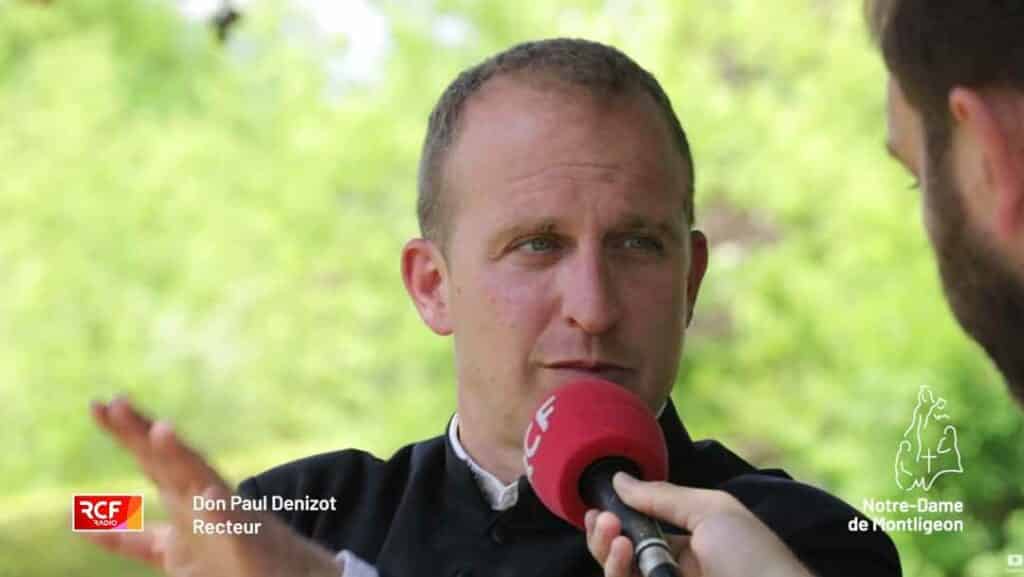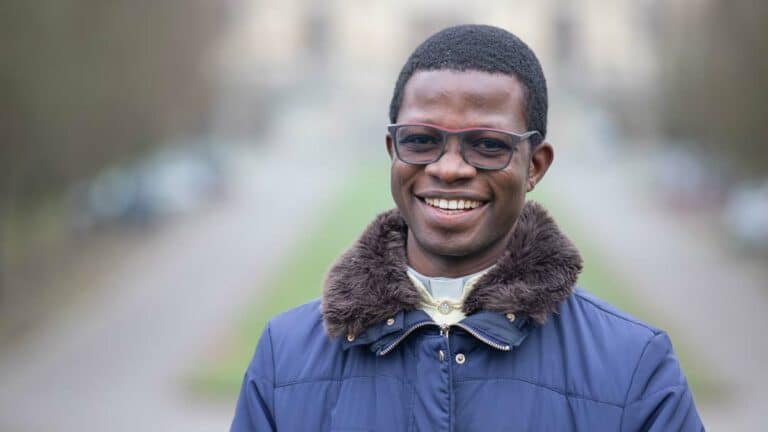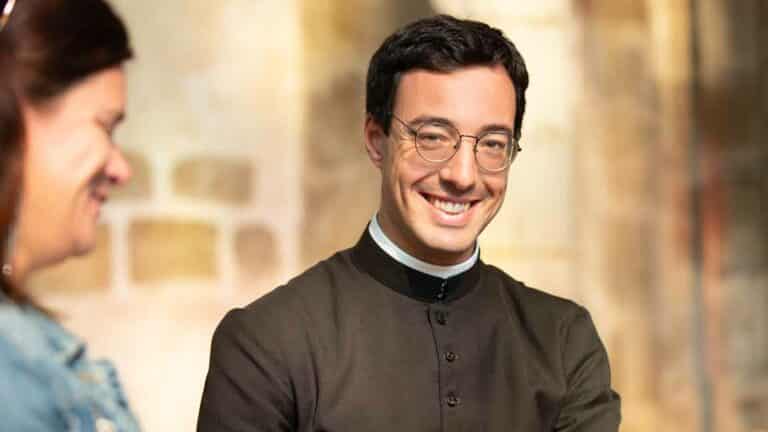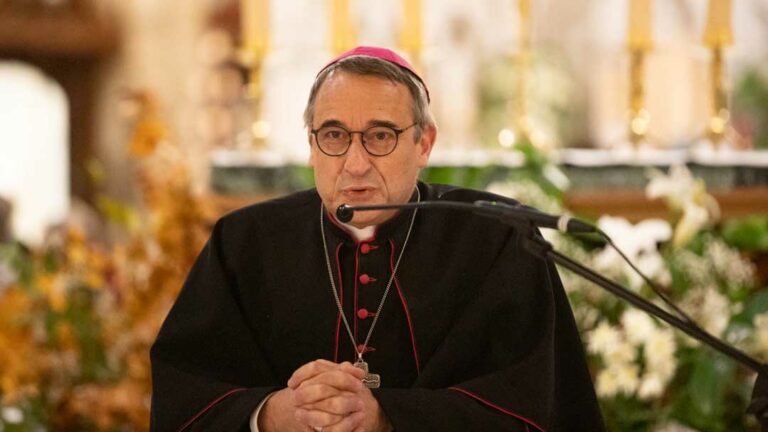Is extreme unction the same thing as anointing the sick? Vatican II has broadened the understanding of the sacrament of extreme unction. As a result, today the sacrament of anointing the sick is no longer restricted to the dying. Interviewed by Guillaume Desanges for RCF radio program Sanctuaires normands, Don Paul Denizot clarifies both concepts.
“Is anyone among you sick? Let them call the elders of the church to pray over them and anoint them with oil in the name of the Lord. And the prayer offered in faith will make the sick person well; the Lord will raise them up. If they have sinned, they will be forgiven.”
(Jc 5, 14-15).
Initially, as confirmed by saint James the apostle, the Sacrament of anointing of the sick had always been available to all sick persons. Over time, the focus might have been shifted on extreme unction. However, nowadays, any sick person experiencing major steps in their illness, or those with very old age, or those who feel they are getting closer to death may request this sacrament. Besides, it can be received several times.
Can you expect being healed after receiving the sacrament of anointing?
Of course you can! You can expect both healing and a miracle – although what you also request is the ability to endure your illness with strength, courage and peace. I gave the sacrament of anointing the sick many times and while the persons were not healed physically, they did receive peace, consolation and courage. Therefore, this sacrament has true power to bring strength and hope and allow you to overcome the ordeal of illness.
What happens when you receive the sacrament?
The priest anoints your brow and the palm of your hands with oil and says: “Through this holy anointment, may the Lord in His great goodness, comfort you through the grace of the Holy Spirit. Thus, after liberating you from all your sins, may He save you and relieve you.” So you see, the sacrament has two components, one of forgiveness for the sins and one to bring relief through hope.
When should it be requested?
Many people consider the priest’s visit when they are sick as a sign that they are going to die soon. For instance, while I was doing my ministry with people who had fallen in the trap of alcohol, I was called only after the death of someone, for the funerals. I thought it was a pity and I regretted I was not able to visit that person before he died.
The sacrament of anointing the sick does not kill, it gives strength instead
The sacrament should be offered as early as possible because it does not make people die but brings them strength instead. Also, it provides an opportunity to confess your sins. Hesitating to offer it is really too bad. I remember that son who had mentioned the possibility to his father. Whilst it was not an easy thing for him to say, his father had accepted immediately. Being able to talk about death, to get prepared to it and review their lives does good to the sick. So there is no reason to wait to offer this sacrament.
Should you talk about death to a loved-one who is seriously ill?
I was requested so many times to go and talk about death to sick people because their family or the doctors could not find the words! It is very important to do so though. As for me, I would hate to have my death ‘stolen’ from me or the truth hidden from me, because I would want to get ready personally. I think most of us are like this, even if it is never an easy subject to discuss with a loved-one.
What about those who are not close to the Church?
It is a very simple sacrament, very accessible: a laying on of hands, a meditation of God’s Word, an anointment with oil. The most challenging thing maybe is to find a priest available but you should not hesitate to bother them or call the parish. Also, let’s pray for vocations, so that more and more priests be able to give the sacrament.
Getting ready for death
Being able to discuss our death when we are close to the end is certainly an important milestone. However, all of us can get ready for death everyday. For example, at Compline in the evening, we hand over our day to the Lord and ask Him to keep us in His peace. Also, when we pray Hail Mary or the prayer to Our Lady of Perpetual Help, we ask for the grace of final perseverance. A good death therefore is something to request both for ourselves and our loved-ones.
Next, getting ready for death means accepting the challenges, frustrations and vexations of daily life. Putting things in perspective – even our legitimate concerns – and in the light of the love of God is liberating. And, quite mysteriously, it prepares us for death. Some deaths can also give us food for thought. This happened to me when I heard about the death of a Parisian priest who was my age. I then wondered: “If I were to die today, what would I want to experience? Are there people to whom I have not asked to forgive me, or things I would like to express before I depart?”
The role of confession
Confession can also help people to die. I remember a man who had been at odds with the Church for many years. When he felt he was about to die, he confessed to a priest. Receiving the Lord’s forgiveness brought him considerable peace.
Confession is a good habit to get into. Pope John-Paul II, Mother Teresa of Calcutta used to do it almost every week. Practicing it on a regular basis is most helpful to experience this sacrament when you are at the very end of your life. Receiving the Lord’s forgiveness helps you to be free from all your sins.




